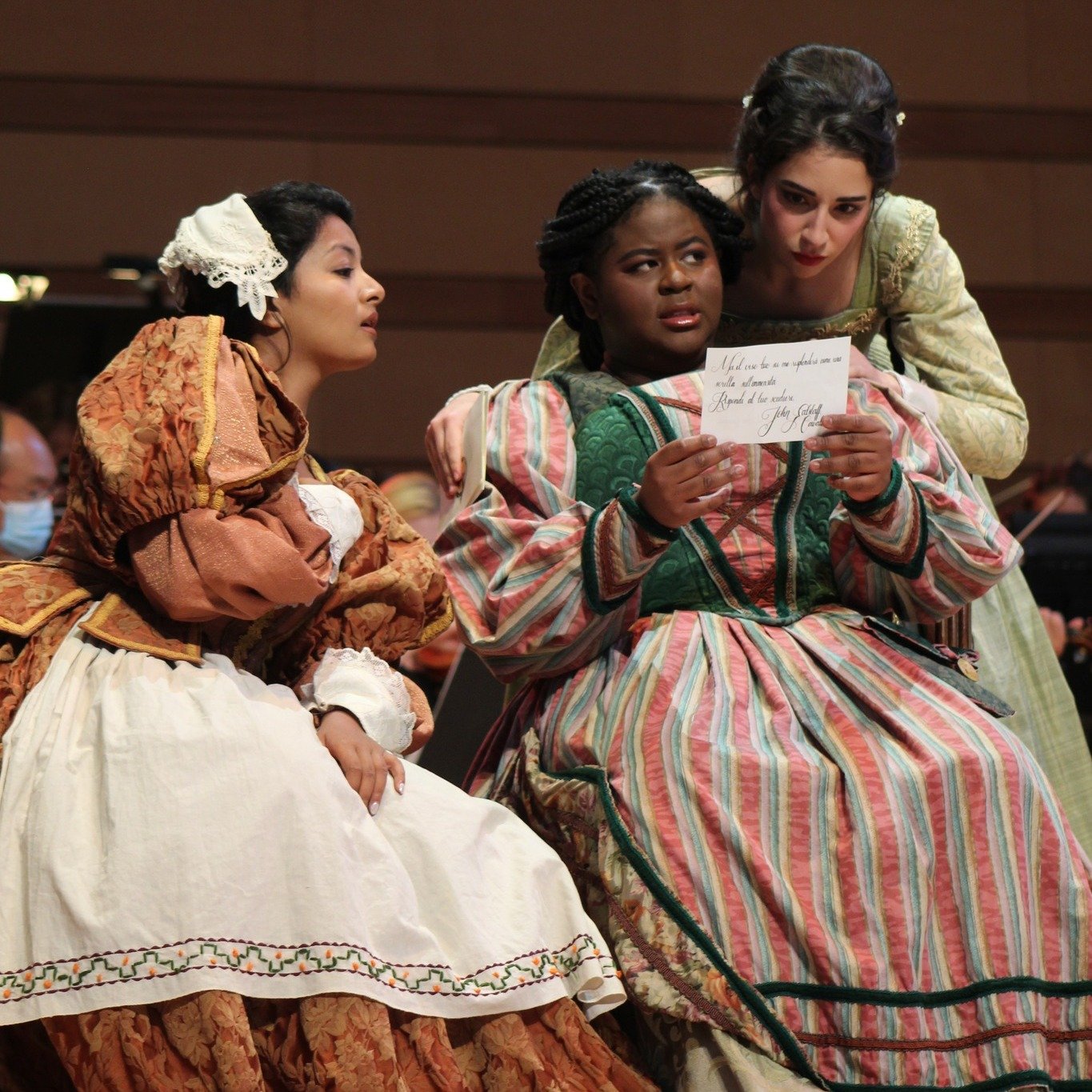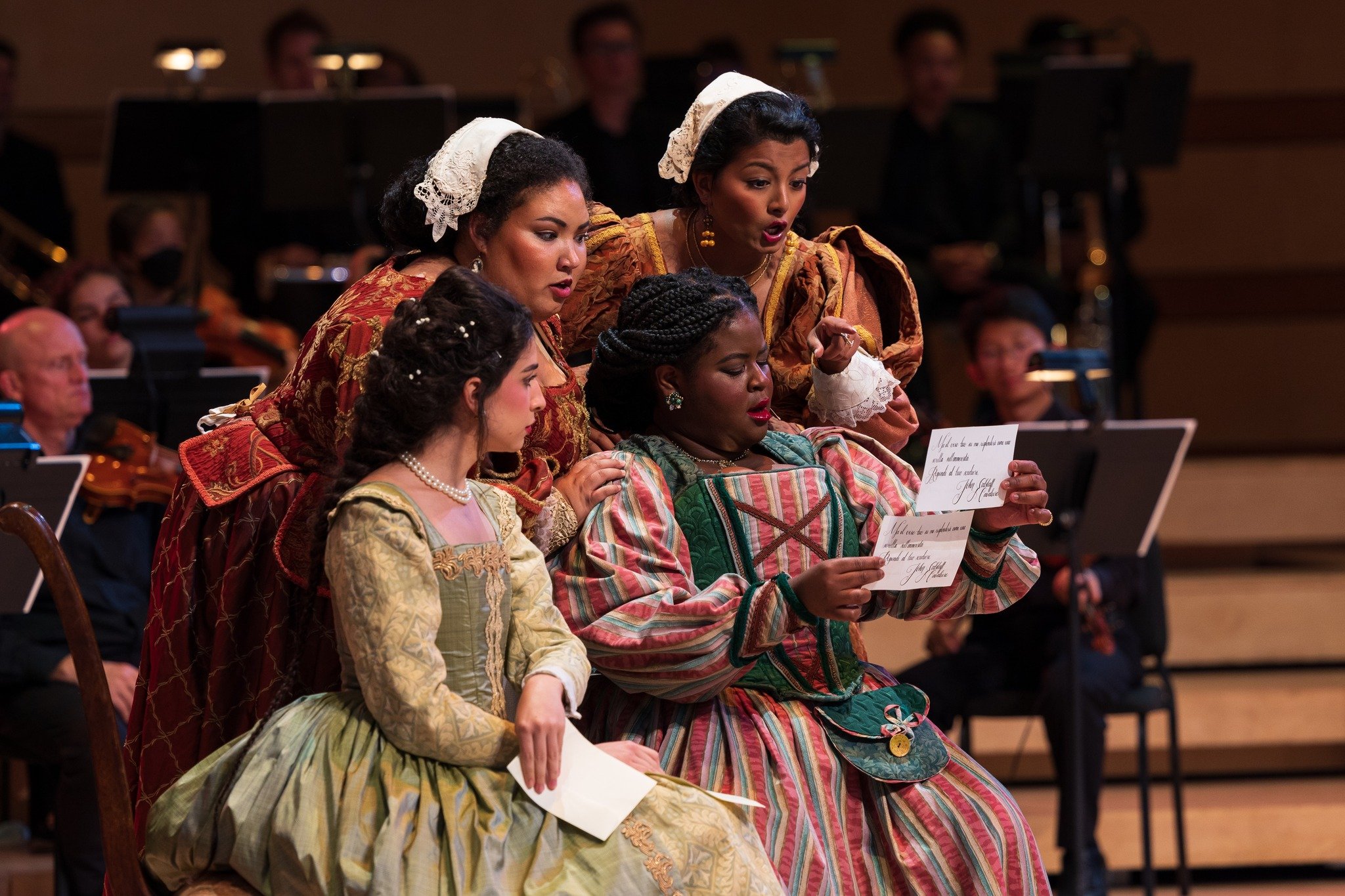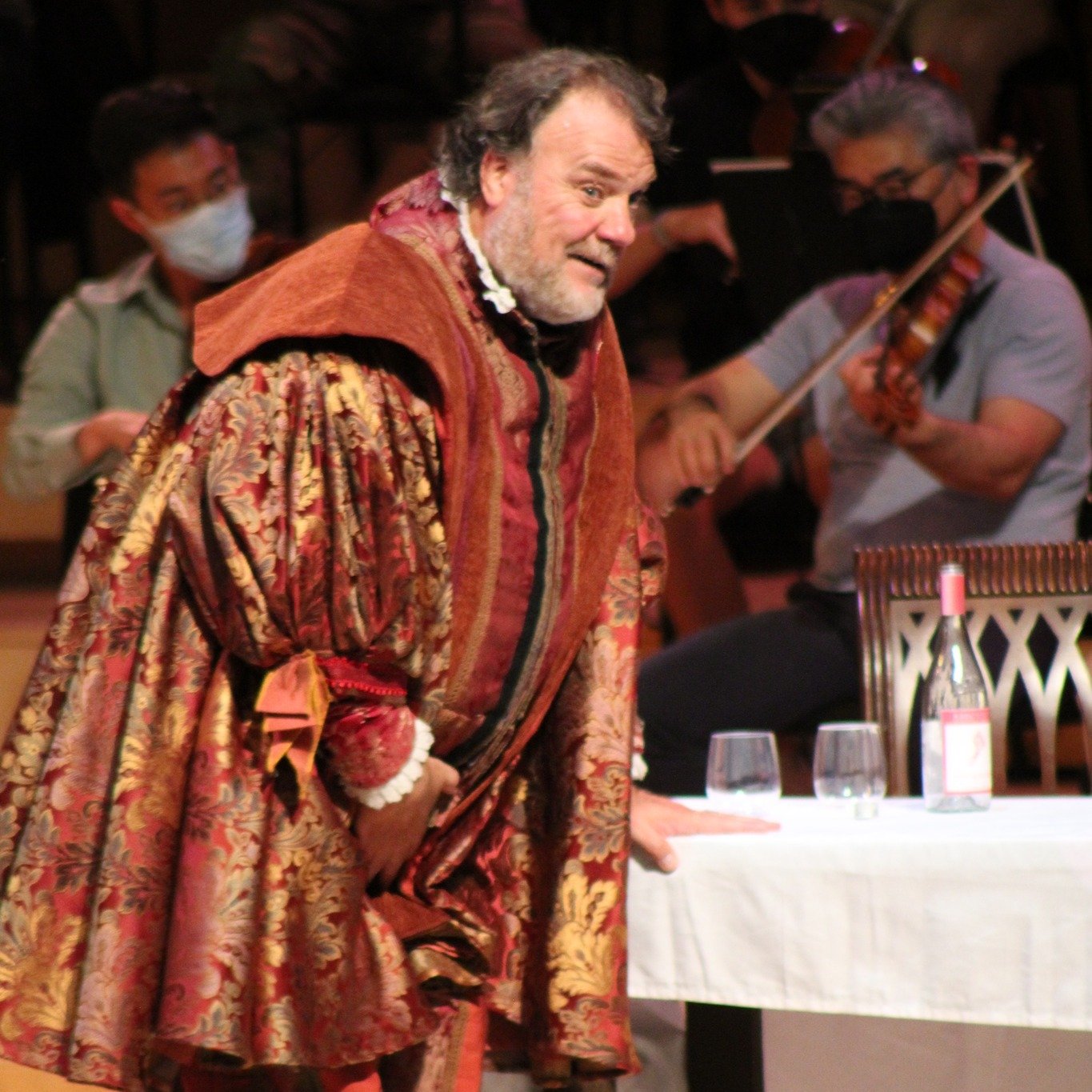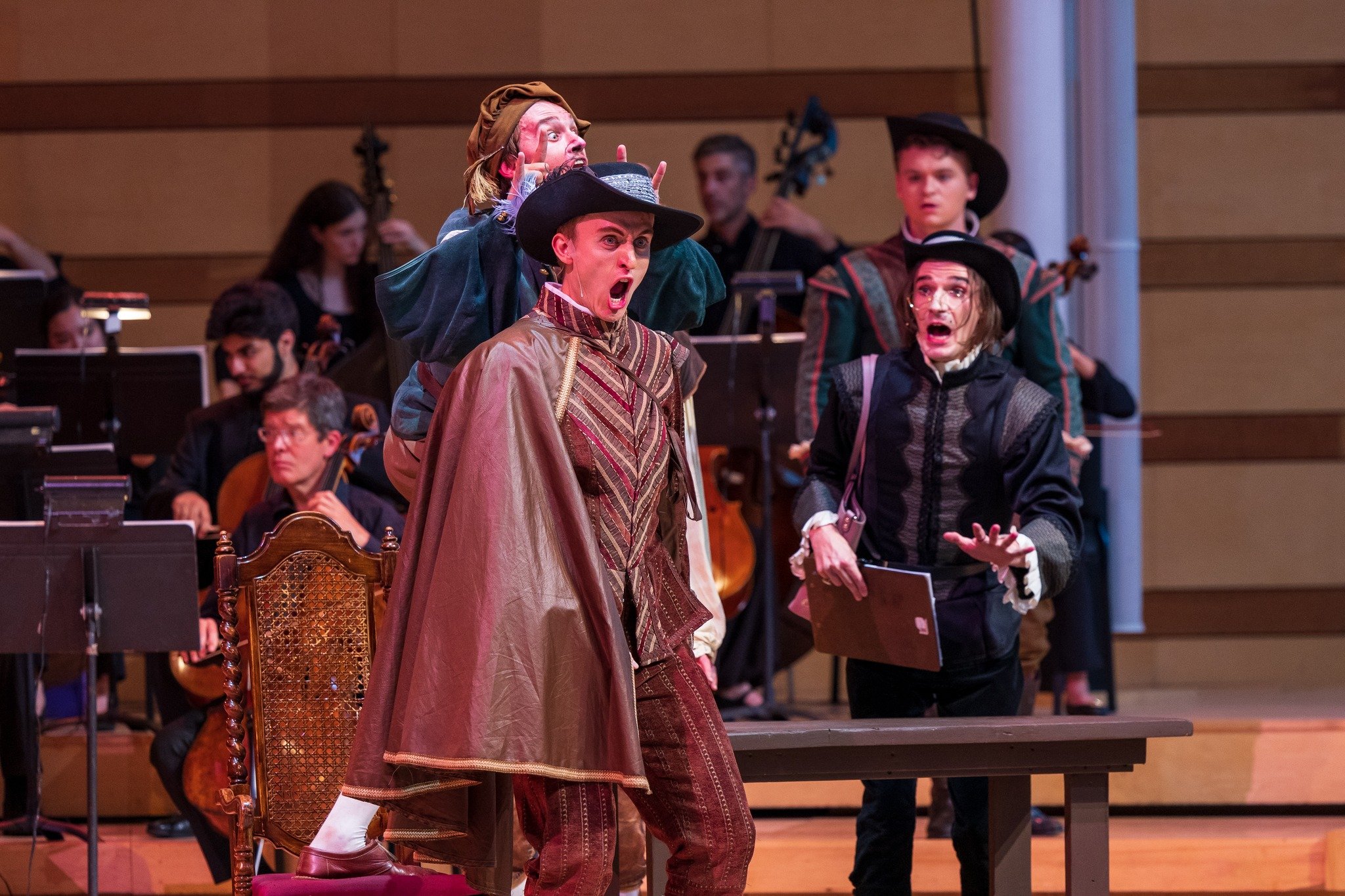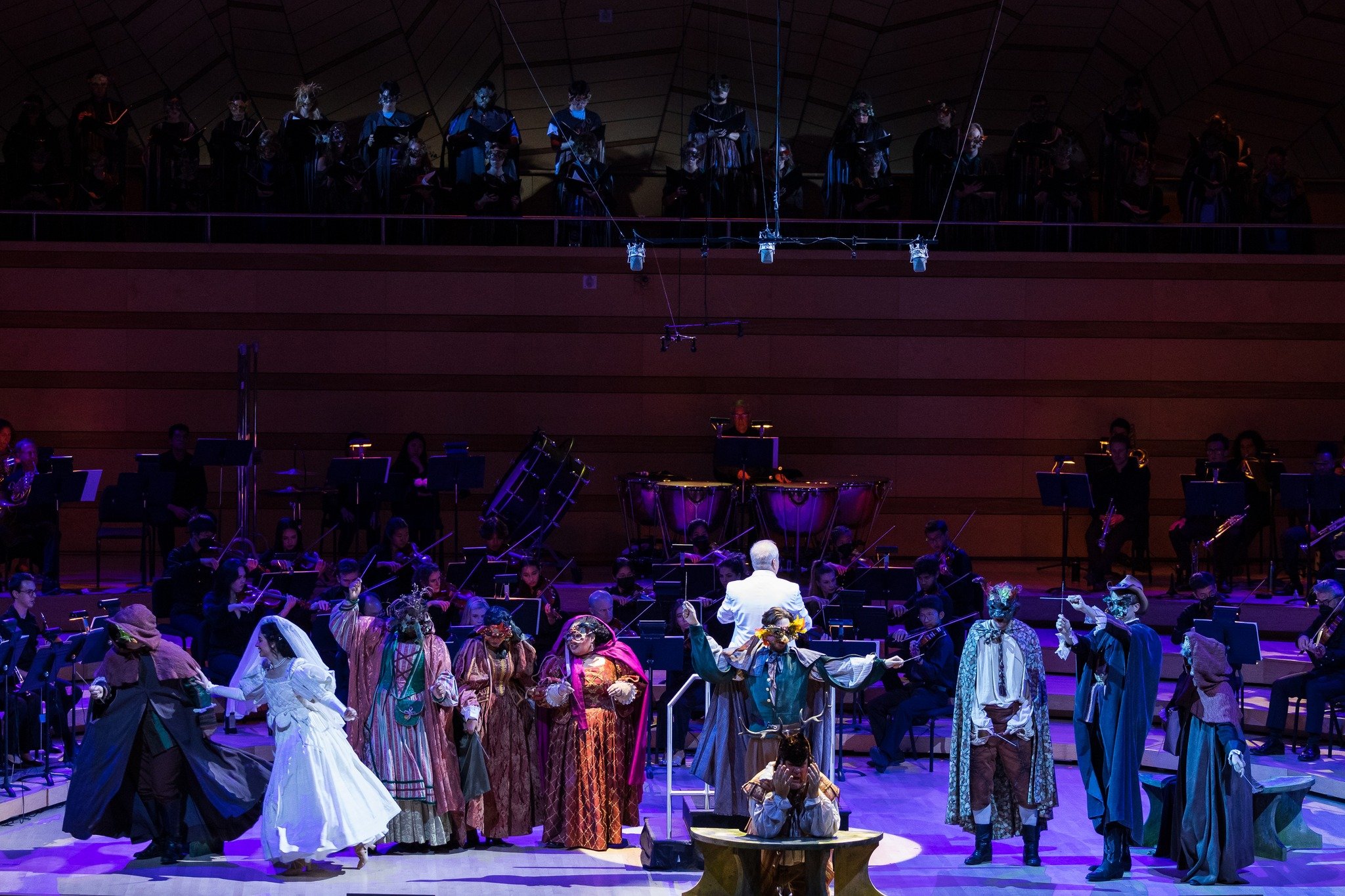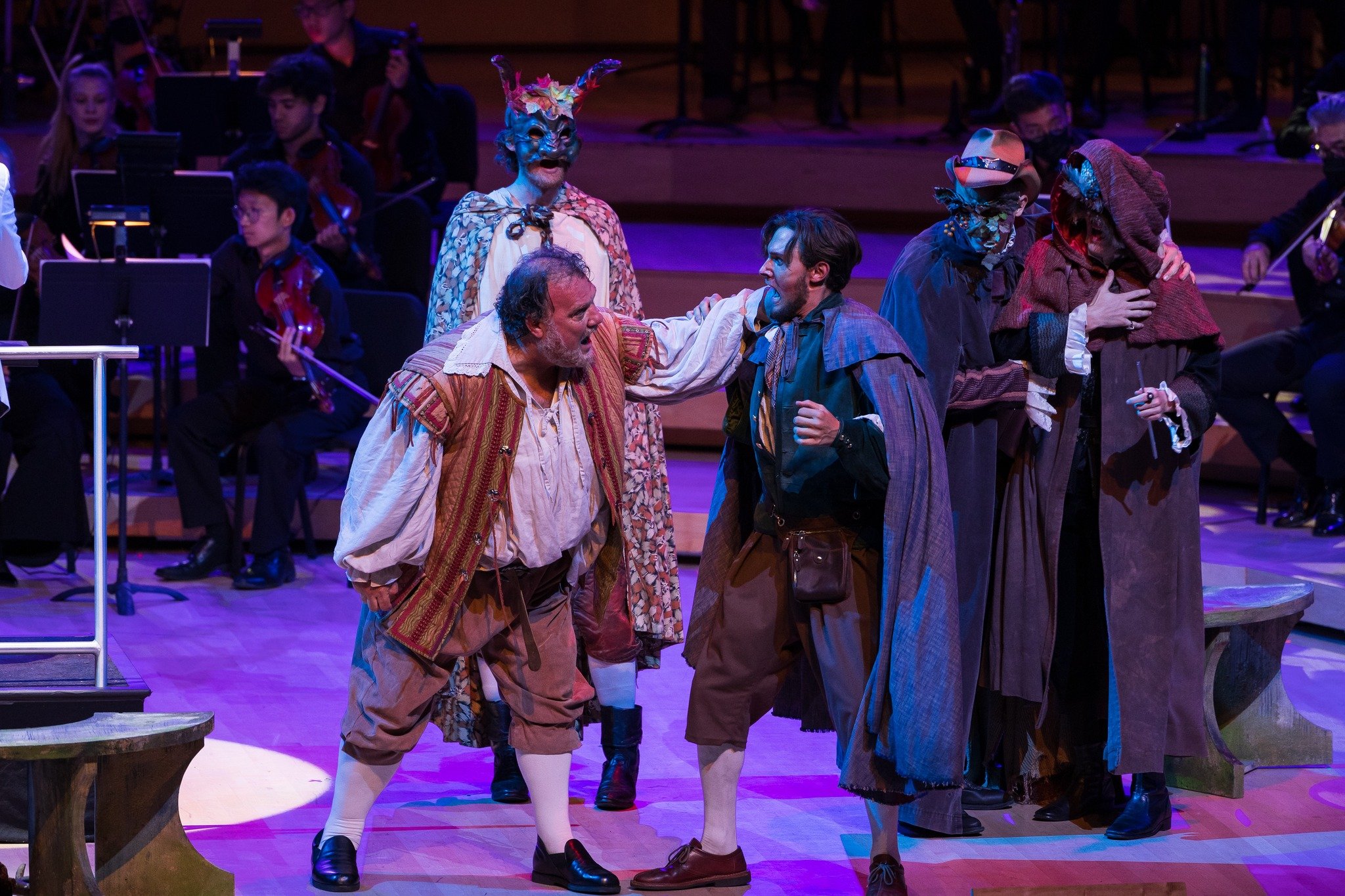Falstaff (2022)
Assistant Director
All photo credit to Aspen Opera Theater and VocalARTS.
Performance Credits
Falstaff: Sir Bryn Terfel
Alice Ford: Katerina Burton
Ford: Michael Hawk
Nanetta: Kresley Figueroa
Fenton: Michael Butler
Quickly: Natalie Lewis
Meg Page: Deepa Johnny
Bardolfo: Joshua Berg
Pistola: Joseph Hack
Dr. Caius: Richard Pittsinger (replacing César Andrés Parreño, due to illness)
Production/Staff Credits
Producer: Aspen Opera Theater
Stage Director: Paula Suozzi
Conductor/Chorusmaster: Patrick Summers
Costume Designer: Lauren Roark
Lighting Designer: Josh Hemmo
Production Stage Manager: Hannah Schumacher
Assistant Stage Managers: Nick Nyquist, Allison Bailey
Production Manager: Matt Grevan
Properties Coordinator: Victoria Toth, Flynn Zook
I half-expected the summer of 2022 to be a fairly quiet one. After making it through our 2021-22 season at FGO, we were starting to get into the slow, tedious planning work that takes place during the offseason. I enjoyed a nice trip to Canada and wasn’t home more more than few days when I got a text from a director I worked with previously. He wondered if I was still doing AD work and would be available to go to Aspen to join the Aspen Music Festival for the summer. I told him I would have to check with my bosses, but that one show might have been easier than the whole summer. I made a plan with my FGO bosses, and within a week, I was on a plane heading into the heart of Colorado.
I’ve been to Colorado before - most of my in-laws live in Denver - but being in Aspen was quite frankly surreal. There were hills dotted with wildflowers, wildlife casually walking wherever they wished, and a weather pattern that was pretty erratic from day to day and hour to hour. Aspen is the kind of place that somewhat justifies its high prices in town; who wouldn’t want to spend a long time enjoying the beauty of nature?
Before I left for Aspen, I spent as much time as I could preparing my translations and refamiliarizing myself with the opera. I had previously directed the garden scene when I was at FSU, but that was almost five years in the past. When we started rehearsing, I quickly realized that I would have one of the finest experiences of not only working on a new show, but also learning it as we went. Conductor Patrick Summers and Stage Director Paula Suozzi did an amazing job of giving the singers as much insight as they could into Verdi’s transformation of Shakespeare’s stories, how to musically interpret Verdi’s underscoring, and how to embody these bold characters. When we added Sir Bryn Terfel to the cast during the final week of performances, I marveled at the charisma he has as a performer, and how he guided the young cast to pick up some of tips that he has learned through his career. I often kept thinking how lucky I was to study this piece with the three of them, and it has inspired me to find my chance to direct the opera myself one day.
The primary challenge with this opera, though, was COVID-19. Remarkably, the pandemic was not much of a factor during our 21-22 main stage season at FGO. There were some scary moments, to be sure, but we never got hit by major illnesses within the casts. In Aspen, it was a much different story. Out of the entire cast of ten people, I believe only four leads made it through the entire rehearsal process without a positive at one point or another. We were very fortunate to have covers or understudies for every part, but it meant that everyone had to be genuinely prepared to go on at a moment’s notice. There were even some rehearsals where I had to walk a character because we lost a cover and lead for the day. While it was great to see Richard Pittsinger perform the role of Dr. Caius, I was especially sad for César Perreño, who created a wonderful character throughout the rehearsal process and had to enter quarantine during the week of the performance.
The other challenge with this production was the venue itself, which is a large, open-air amphitheater in the style of a symphony stage. Apsen previously performed at the historic opera house downtown, but moving to the 2,000 seat tent was a more recent, evolving experiment. Suozzi and Summers worked with the festival staff to build a layout where the orchestra would be positioned across the stage, but still provided aisles and performing areas for the singers. It reminded me of the work we had to do in Indiana when I directed the workshop of Star-Cross’d Lovers. Lighting Designer Josh Hemmo did some of the heaviest lifting to help make the space look more theatrical, especially with his work during the final nighttime scene. I believe that this production showed the festival that they can make opera work at ‘the tent,’ but it definitely required smart people thinking as creatively as possible to placate the needs of hundreds of artists and patrons alike.
The performance was well-received by the audience, who particularly appreciated seeing the funny moments when orchestra interacted with the cast during the performance. And within the course of three hours, that was the end of Falstaff’s run - a one-night only performance. I had to make my way back to my apartment, finish packing, and then start an epic 18-hour return journey to Miami by bus, train, plane, and automobile. Being home was bittersweet: I looked forward to seeing my wife and getting back to my annual job at FGO, but Aspen and Falstaff felt like a unique island away from reality. It represented an operatic career and profession at its most pure - where everyone has the ability to shine if they’re well-prepared and flexible, and the sights are sometimes beyond compare.

